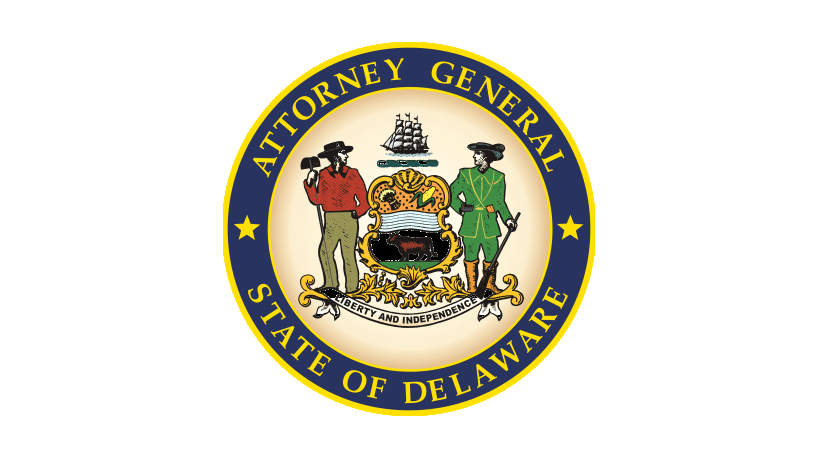Ahead of Election Day, Attorney General Jennings reminds voters of rights and responsibilities
Department of Justice | Department of Justice Press Releases | News | Date Posted: Tuesday, October 27, 2020
Department of Justice | Department of Justice Press Releases | News | Date Posted: Tuesday, October 27, 2020

Delaware DOJ outlines coordination on Election Protection
With Delaware’s general election one week away, Attorney General Kathy Jennings is reminding the public that the Delaware Department of Justice, state and local law enforcement, and the Department of Elections will strictly enforce Delaware’s voter intimidation laws in order to ensure that Delawareans are able to vote safely, fairly, and peacefully.
“Let me be crystal clear: Delawareans should feel safe exercising their voting rights now and on Election Day,” said Attorney General Jennings. “The Department of Justice is the people’s law firm, and we will not tolerate voter intimidation, election tampering, or interference with anyone’s rights. For months, we’ve devoted our resources and the full authority of this office to ensuring that Delawareans are able to vote fairly, peacefully, and safely. That will continue beyond 8pm next Tuesday if prosecutions are necessary.”
Voters who are concerned about a perceived threat to their safety should call 911; voters who are concerned about any other problem can contact the Department of Elections’ voter hotline at (302) 739-4277.
The DOJ’s Division of Civil Rights and Public Trust (DCRPT) has provided law enforcement with written guidance listing possible Title 11 and Title 15 offenses that could be encountered on Election Day. DOJ inspectors in all three counties will staff a hotline for law enforcement to contact in the event of illegal activity, including:
The DOJ also reminds the public of its voting rights and First Amendment rights, including:
The DOJ is one of several State agencies – including the Department of Elections, the Department of Safety and Homeland Security, the Delaware State Police, the Delaware Information & Analysis Center, the National Guard, and the Delaware Emergency Management Agency, among others – that is coordinating a robust election protection strategy.
Finally, the DOJ reminds voters to exercise patience, both on Election Day toward poll workers and other voters, and with potential delays in the subsequent days as the results of national elections are tallied across the country.
Keep up to date by receiving a daily digest email, around noon, of current news release posts from state agencies on news.delaware.gov.
Here you can subscribe to future news updates.
Department of Justice | Department of Justice Press Releases | News | Date Posted: Tuesday, October 27, 2020

Delaware DOJ outlines coordination on Election Protection
With Delaware’s general election one week away, Attorney General Kathy Jennings is reminding the public that the Delaware Department of Justice, state and local law enforcement, and the Department of Elections will strictly enforce Delaware’s voter intimidation laws in order to ensure that Delawareans are able to vote safely, fairly, and peacefully.
“Let me be crystal clear: Delawareans should feel safe exercising their voting rights now and on Election Day,” said Attorney General Jennings. “The Department of Justice is the people’s law firm, and we will not tolerate voter intimidation, election tampering, or interference with anyone’s rights. For months, we’ve devoted our resources and the full authority of this office to ensuring that Delawareans are able to vote fairly, peacefully, and safely. That will continue beyond 8pm next Tuesday if prosecutions are necessary.”
Voters who are concerned about a perceived threat to their safety should call 911; voters who are concerned about any other problem can contact the Department of Elections’ voter hotline at (302) 739-4277.
The DOJ’s Division of Civil Rights and Public Trust (DCRPT) has provided law enforcement with written guidance listing possible Title 11 and Title 15 offenses that could be encountered on Election Day. DOJ inspectors in all three counties will staff a hotline for law enforcement to contact in the event of illegal activity, including:
The DOJ also reminds the public of its voting rights and First Amendment rights, including:
The DOJ is one of several State agencies – including the Department of Elections, the Department of Safety and Homeland Security, the Delaware State Police, the Delaware Information & Analysis Center, the National Guard, and the Delaware Emergency Management Agency, among others – that is coordinating a robust election protection strategy.
Finally, the DOJ reminds voters to exercise patience, both on Election Day toward poll workers and other voters, and with potential delays in the subsequent days as the results of national elections are tallied across the country.
Keep up to date by receiving a daily digest email, around noon, of current news release posts from state agencies on news.delaware.gov.
Here you can subscribe to future news updates.